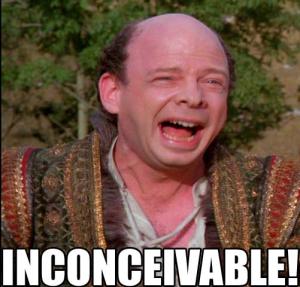
For many Christians, Good Friday brings up aspects of Christianity they would prefer to minimize, or leave behind entirely. Themes like sacrifice, suffering, guilt, and blood make many followers of Christ uncomfortable. Jeremy Smith has recently argued in favor of moving the locus of atonement further away from the cross. Indeed, the cross remains to followers of Jesus what it was to people in the ancient world: foolishness and a stumbling-block. (1 Cor. 1:23)
In Death on a Friday Afternoon, Fr. Richard Neuhaus explores various attempts to re-imagine the atonement and finds them wanting. He looks at the cross through the lens of liberal, existentialist, and liberationist theologies and finds in them little to no hope at all. But neither is he (pardon the expression) satisfied with expressions of atonement that emphasize the wrath of God the Father punishing Jesus on the cross. Instead, he suggests we see the cross as an act of love by the whole of that great mystery we name as God: the Trinity, the Father, Son, and Holy Spirit. The book as a whole is marvelous, and I would commend it to your reading. The section to which I refer is worth quoting in its entirety:
“We do well to get rid completely of the notion that the atonement is about what God did to Jesus. This requires returning to the truth that the God who brought about our atonement is the Holy Trinity – Father, Son and Holy Spirit. Atonement is from beginning to end the work of the three divine Persons of the triune God. In collusion with the Father, the Son, in the power of the Spirit, freely takes our part by becoming our representative. A representative is different from a substitute. The atonement is not a quantitative matter. It is not as through there is a certain amount of wrong for which a certain amount of punishment is due, and so somebody must be found to take the punishment. That way of thinking produced the ritual of the scapegoat, a ritual reenacted in many different ways throughout history. Christ’s atoning sacrifice is not about quantitates of sin and punishment but is intensely personal. It is the mending of a personal relationship between God and humanity that had been broken.
Justice requires that satisfaction be made; we were and we are in no position to make such satisfaction. Jesus Christ actively intervenes on our behalf, he freely takes our part in healing the breach between God and humanity by the sacrifice of the cross. To speak of a collusion between the Persons of the triune God suggests the word ‘conspiracy.’ It is a helpful word when we remember that conspire means, quite literally, ‘to breathe together.’ in the beginning, God breathes life into Adam; Jesus breathes upon the disciples and says, ‘receive the Holy Spirit.’ The triune God conspires for our salvation. The entire plan is love from beginning to end, and the fullness of God – Father, Son and Holy Spirit – is engaged every step of the way. It is not an angry Father punishing an innocent Son, with the Spirit on the sidelines helplessly watching. No, it is the Father, Son, and Spirit conspiring together to save us from ourselves. At the Father’s command, the Son freely goes forth in the power of the Spirit to become one of us. On our behalf, as Representative Humanity, he lives the life of perfect obedience that Adam – and all of us ‘in Adam’ – failed to live. And he completes that life by dying the perfect death.” (220-221)
The cross is a conspiracy of love by the triune God. That’s why we call it Good Friday, and that’s why we run away from the cross to our peril. Let us, with John the Baptist, behold and marvel at “the lamb of God who takes away the sins of the world.” (John 1:29) Thanks be to God.
 I am convinced that we take the wonder and peculiarity of the Christian story for granted. Our ancient forebears, not weighed down with sappy sentimentality or rationalistic reductionism, knew better. I came across the following quote by St. Cyril of Jerusalem while researching a sermon and I thought it was too good not to share. This is from his catechetical lectures on the sacraments:
I am convinced that we take the wonder and peculiarity of the Christian story for granted. Our ancient forebears, not weighed down with sappy sentimentality or rationalistic reductionism, knew better. I came across the following quote by St. Cyril of Jerusalem while researching a sermon and I thought it was too good not to share. This is from his catechetical lectures on the sacraments:
